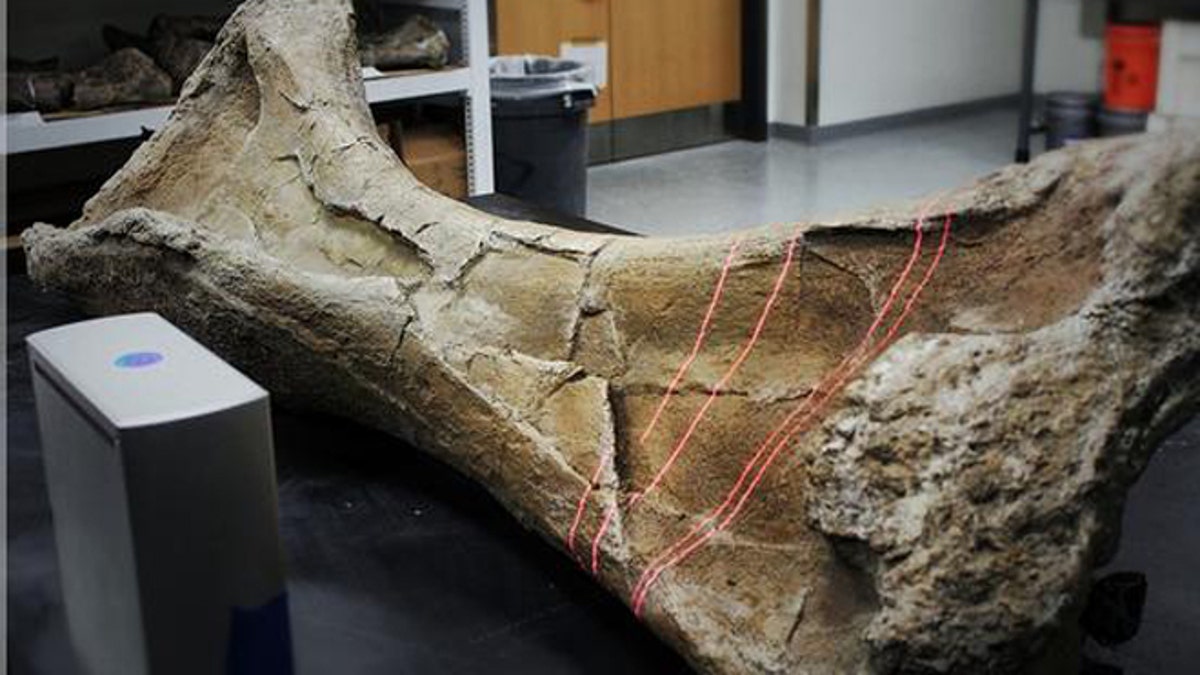
A foreleg bone from a Paralititan stromeri, the second-most massive dinosaur species ever discovered, gets a laser scan in preparation for 3-D printing. (Drexel University)
Paleontologist Kenneth Lacovara is looking to print out some robot dinosaurs.
He wants to use a 3-D printer to create dinosaur bones, based on real fossils, to use in scaled-down robo-saurs. In the same way that document programs can shrink a page to 50 or 20 or 2 percent of its original size, a 3-D printing program can shrink a blueprint for 100-foot-long skeletons to a more manageable size for study.
The assembled dino-bots will help Lacovara, who is based at Drexel University in Philadelphia, Pa., study how 60- to 80-ton sauropods stood, walked and mated. "It's great," he said, "because I physically can't lift up [and piece together] the bones."
"It's this new frontier in paleontology," he told InnovationNewsDaily.
[pullquote]
Lacovara will use lasers to scan original, fossilized bones. Then a 3-D printer will make copies of the bones' shape, based on the scans. The printer works by laying down thin layers of plastic, gradually building up the layers into a 3-D object.
Lacovara has already printed a few bones of a Paralititan dinosaur, one of the most massive dinosaur species ever discovered. He, along with an engineering colleague at Drexel, will hook up the printed skeletons with artificial muscles and tendons, creating robots they can watch move. He hopes to have a working dino limb, either of Paralititan or another large sauropod, by the end of the year.
He's not the only biologist who has started using 3-D printing in his research. Others are using the technology to study the bones and movement of fluorescent deep-sea fish and humankind's primate ancestors. The Canadian Museum of Nature in Ontario has its own 3-D printing center for dinosaur fossils.
Besides their re-sizing ability, 3-D printers help researchers create more models more easily than ever. Usually, scientists who want model bones have to painstakingly create molds from original fossils, then use the molds to cast artificial bones. The molds wear out after five or six uses, Lacovara said. On the other hand, a 3-D printer can continue to print crisp, accurate bones indefinitely.
Copyright 2012 InnovationNewsDaily, a TechMediaNetwork company. All rights reserved. This material may not be published, broadcast, rewritten or redistributed.








































